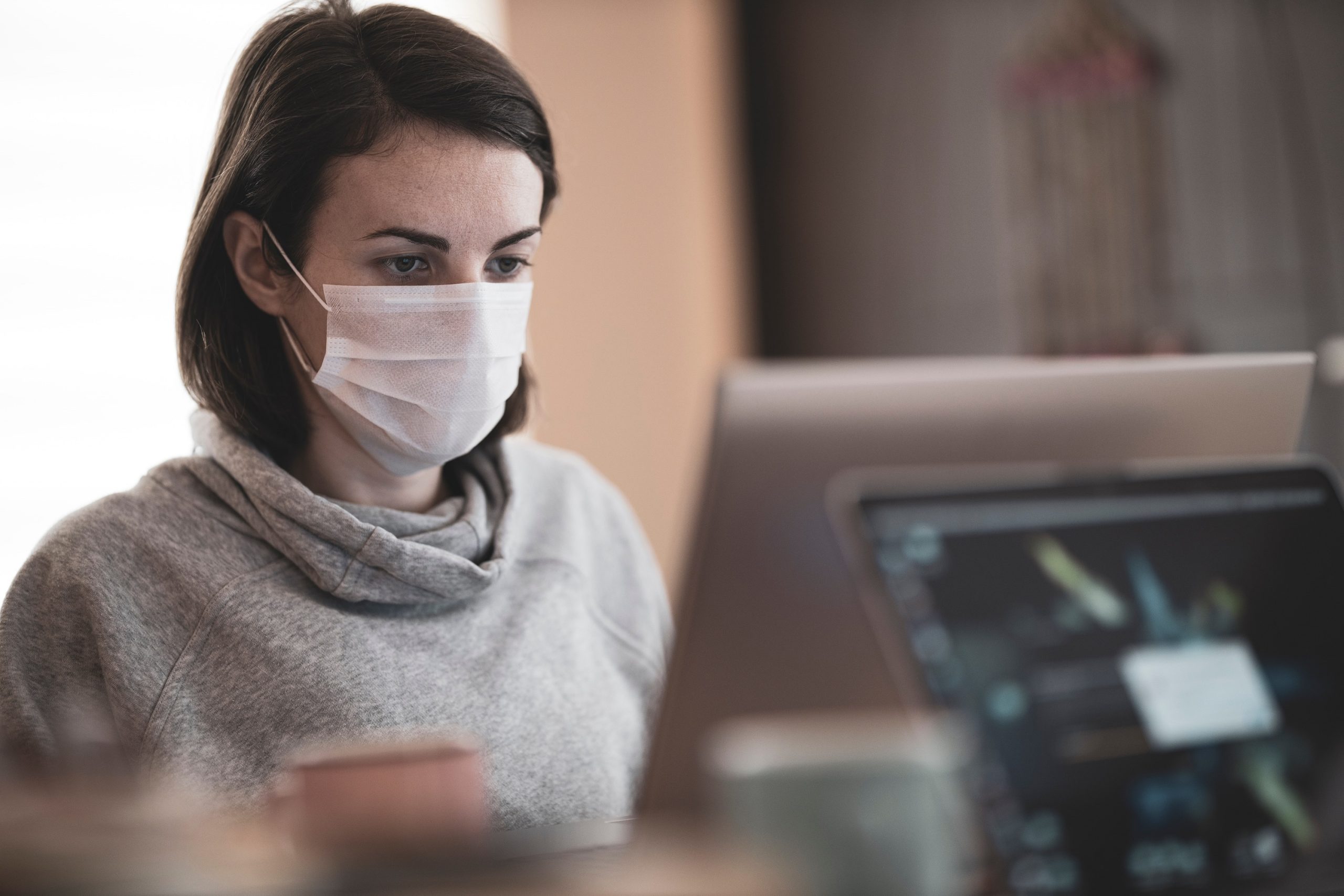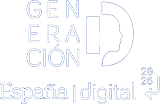12/09/2022
Regarding masks:
Royal Decree 286/2022, of April 19, which modifies the obligatory use of masks during the health crisis caused by COVID-19, leaves it up to those responsible for occupational risk prevention in companies to decide on the obligation to use masks in work environments, in accordance with their assessment of the risk associated with each position. In this context, DigitalES shares the following recommendations:
- Promote a corporate culture of respect for individual freedom, where those who wish to continue wearing masks are not questioned.
- Maintain the obligation (or at least the recommendation) to use face masks in small or high-occupancy enclosed spaces, such as elevators or meeting rooms, as well as medical service facilities, vehicles and public-facing work.
- Maintain the recommendation of frequent hand hygiene, a minimum distance of 1.5 meters from other people and good ventilation of spaces.
- The recommendation to wear a mask in the work environment is also extended to immunocompromised, pregnant or vulnerable people.
The field protocol for COVID-19 is now as follows:
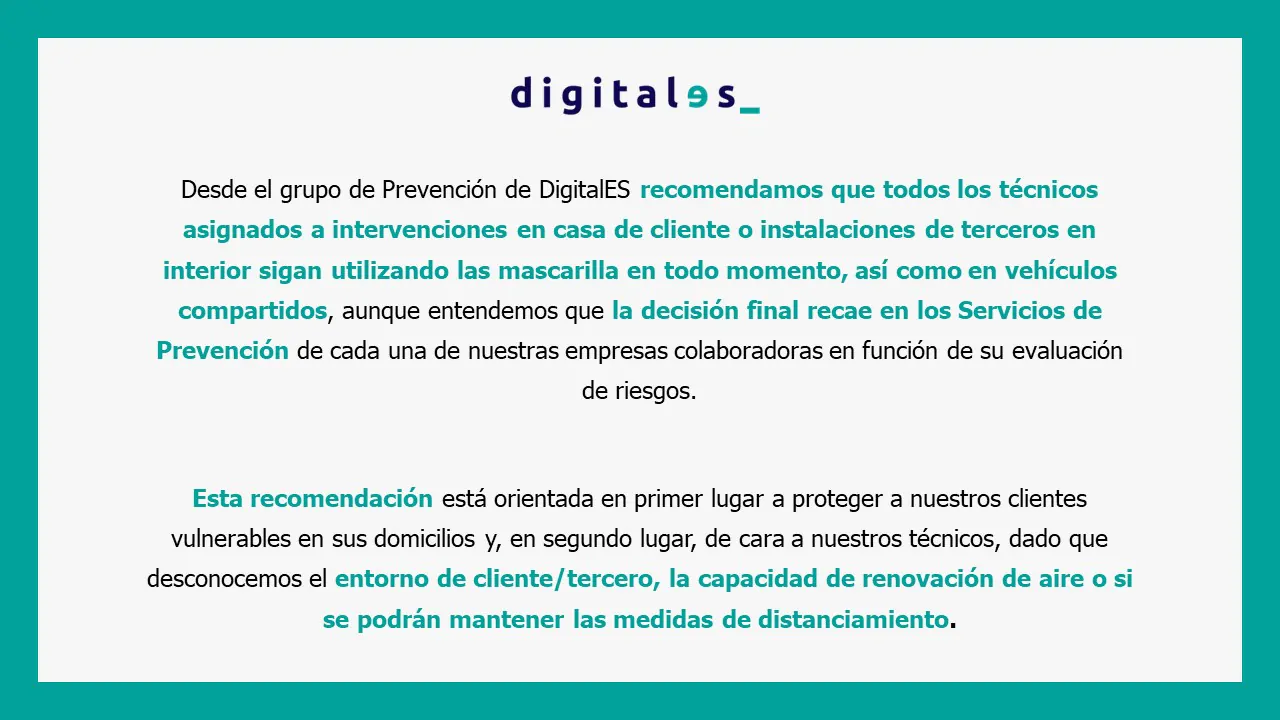
In relation to labor flexibility:
- Enable a mailbox through which employees can justify their interest in a work model (face-to-face, remote or mixed) different from the one established by the HR department or, in addition, by the management of their department or business unit.
- Request the collaboration of the entire organization, through an anonymous internal survey on the lessons learned and pending challenges related to labor flexibility, after two years of the pandemic.
- To the extent possible, advance possible changes in the work models in advance.
In relation to talent retention:
As a consequence of the telework push, we observed an increase in turnover in some technology subsectors. In response, it is possible:
- Reinforce mobility and internal training policies, which are highly valued by talent with high ‘soft skills’.
- To emphasize that the current 100% telework boom may not be sustainable over time.
- Define and transparently share with the entire organization a roadmap (subject to adjustments depending on the health situation) of a 2-year working model.


